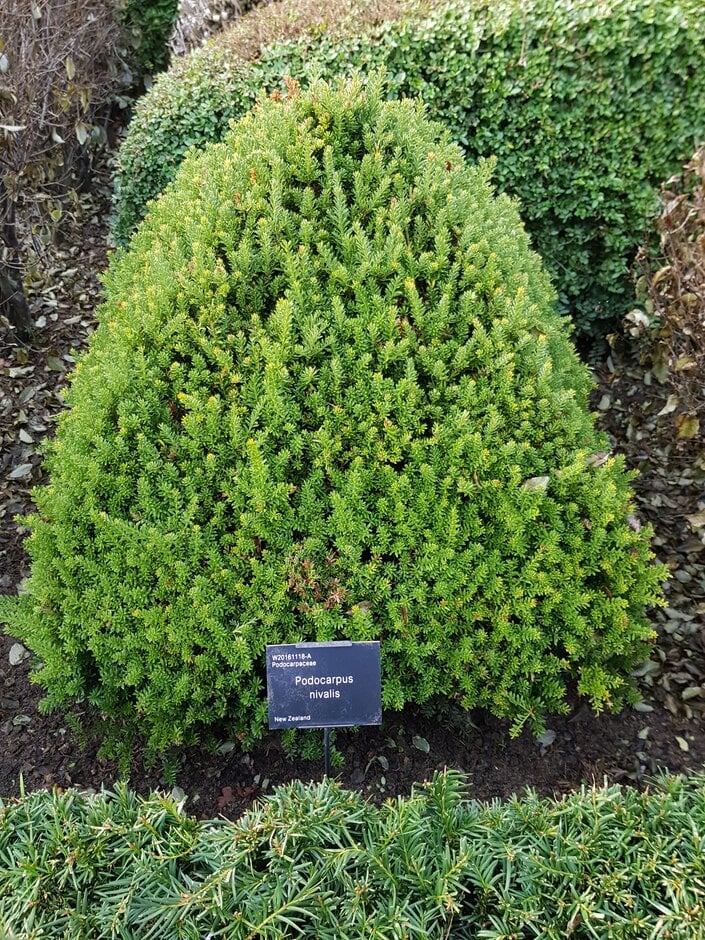Podocarpus nivalis
mountain totara
A rounded, wide, dense evergreen conifer with robust, narrow dark green leaves. Can be variable in height, but never more that of 2m (6ft). Red fruits 6mm (¼ in) long, are borne on female plants
Size
Ultimate height
1.5–2.5 metresTime to ultimate height
10–20 yearsUltimate spread
1.5–2.5 metresGrowing conditions
Moisture
Moist but well–drainedpH
Acid, Alkaline, NeutralColour & scent
| Stem | Flower | Foliage | Fruit | |
| Spring | Green | |||
|---|---|---|---|---|
| Summer | Green | |||
| Autumn | Green | Red | ||
| Winter | Green |
Position
- Full sun
Aspect
South–facing or West–facing
Exposure
Sheltered Hardiness
H5Botanical details
- Family
- Podocarpaceae
- Native to GB / Ireland
- No
- Foliage
- Evergreen
- Habit
- Bushy
- Potentially harmful
- Slightly toxic if ingested. Wear gloves and other protective equipment when handling
- Genus
Podocarpus can be evergreen shrubs or trees, with spirally arranged, but usually 2-ranked, leaves which may be linear or narrowly lanceolate; plum-shaped fleshy fruits are produced only where male and female trees grow together
- Name status
Correct
- Plant range
- New Zealand
How to grow
Cultivation
Grows best in rich, moist soil that contains plenty of organic matter. Enjoys shelter from drying, cold winds
Propagation
Propagate by seed as soon as ripe. Sow in spring in an open frame. Germination can take up to 18 months. Propagate by semi-ripe cuttings from upright shoots in late summer
Suggested planting locations and garden types
- Architectural
- Cottage and informal garden
- Low Maintenance
- Flower borders and beds
Pruning
No pruning required
Pests
Generally pest-free
Diseases
Generally disease-free
Love gardening
Sign up to receive regular gardening tips, inspiration, offers and more
View our Privacy Policy
Get involved
The Royal Horticultural Society is the UK’s leading gardening charity. We aim to enrich everyone’s life through plants, and make the UK a greener and more beautiful place.

